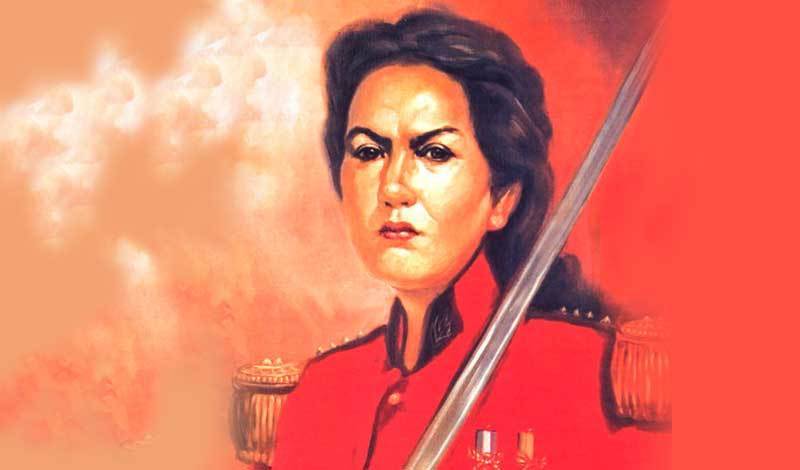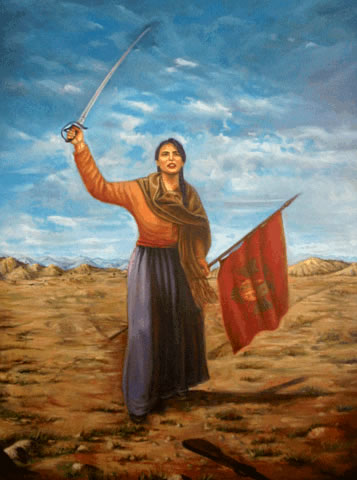I’m sure you’ve heard of Simon Bolívar (or at least I hope so! If not, you can Google him later), but what about Juana Azurduy de Padilla? Bolívar himself, known as the liberator of South America, said that Bolivia should not have been named Bolivia after him, but rather Padilla or Azurduy after this fierce guerrilla military leader who fought for Bolivian independence.
She was born to a white Spaniard father and an indigenous mother and was raised outside of conventional gender roles by her father, learning to ride and shoot alongside reading and writing, a truly unusual occurrence for the time. After the death of her parents, her aunt sent her to a convent to tame her wild behavior, but eventually she was kicked out of the convent and it was then that she joined the Chuquisaca Revolution, an independence movement concerned with freeing South America from Spanish rule.
Azurduy’s husband often fought alongside her, but it was her knowledge of Spanish, Quechua, and Aymara that helped her gain the confidence and trust of indigenous fighters. Throughout her time resisting the Spanish occupation, she traveled through what is now Argentina, Peru, and Bolivia, and eventually gained the title of Lieutenant Colonel after word reached her superiors that she had returned to the battlefield mere hours after giving birth. When her husband was captured and beheaded by enemy forces, she led a counterattack to receive his body.
Once the Spanish forces withdrew from her hometown, newly renamed Sucre, and Bolivian independence was declared, Azurduy petitioned to return there and was not granted a favorable answer. She was also granted a military pension by Bolívar, but it was ultimately revoked and she died impoverished and was buried in a communal grave, to be forgotten for nearly a century.
She is now commemorated in both Bolivia and Argentina: the airport in Sucre is named after her, as is the Azurduy province in Bolivia. In Buenos Aires, Argentina, a statue of Columbus was taken down and replaced with an enormous statue of her (on July 15, 2015—I was in Argentina in the first week of July 2015 and can’t believe that I just missed having seen it), and the National Programme for Women’s Rights and Participation is also named after her. Her birthday, July 12, is also recognized as the Day of Argentine-Bolivian Fellowship. I am glad to see that she is finally receiving some of the recognition she so greatly deserves.

